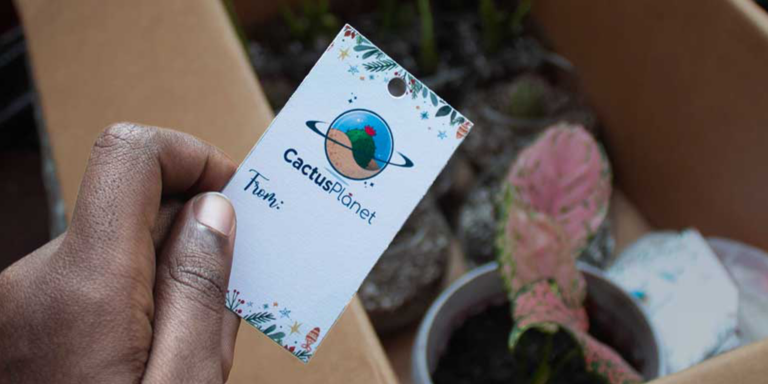Guide to Naming Your Brand or Business
When starting a new business or rebranding an existing one, choosing the right name is a crucial step that can significantly impact the success of your brand. Your brand name isn’t just a label—it’s a fundamental part of your brand identity. It’s how your audience will remember, refer to, and connect with your brand. Getting it right is important. I created this quick guide to walk you through the types of brand names, what makes a good brand name, and some practical tips for ensuring your chosen name sets your brand up for success.
The Seven Types of Brand Names
- Named After the Founder
Naming a brand after its founder is one of the most straightforward approaches and can create a personal connection and a sense of legacy. Brands like Ford (Henry Ford) and Disney (Walt Disney) exemplify how a founder’s name can become synonymous with the brand’s identity and values. - The Descriptive Name
A descriptive name tells you exactly what the brand does or sells, making it easy for customers to understand your brand’s purpose. General Motors clearly indicates its automotive focus, while American Airlines tells you that its an airline that operates in America. - A Made-Up Name
Inventing a new word as a brand name allows for uniqueness and flexibility. Brands like Google or Kodak have become pretty iconic because of how unique and memorable they are, which makes them really stand out. One of my personal favourite is the local jewelry brand Lewks. The name is a slang that derived from the word ‘Looks’ which means that your style is unique or attractive. It is very impressive how the brand connects to their audience through just the name; coming up with phrases like: ‘serving Lewks‘, ‘Lewks good!’. - A Metaphorical Name
Metaphorical names convey something about the brand’s character or values through imagery or association. Nike, named after the Greek goddess of victory, suggests strength and triumph, while Amazon reflects vastness and variety. - An Acronym
Acronyms can simplify longer names or phrases and, over time, become powerful symbols. IBM (International Business Machines) and KFC (Kentucky Fried Chicken) are prime examples of acronyms that have achieved global recognition. One of the difficulties of acronyms is that they aren’t very memorable when starting out. - A Combination of Two or More Words
Combining words to create a new brand name can result in something both descriptive and unique. Microsoft (microcomputer + software) and Netflix (internet + flicks) are examples of this, hinting at the brand’s purpose while being unique and easy to understand. - A Name from an Ancient or Foreign Language
Using a word from an ancient or foreign language can add elegance or intrigue. Acura, derived from the Latin word “acu” meaning precise, and Häagen-Dazs, designed to evoke European craftsmanship, illustrate how these names can convey quality and sophistication.
Characteristics of a Good Brand Name
A good brand name has several key characteristics that contribute to the success of your brand:
- Memorable: A great name sticks in the minds of your audience. Names like Apple or Nike are short, catchy, and easy to remember, which helps them stay top-of-mind for consumers.
- Unique: To stand out in a crowded marketplace, your brand name should be distinctive and not easily confused with others. This uniqueness helps to differentiate your brand and build a strong identity.
- Aligns with Your Brand and Values: The name should reflect your brand’s mission and values. For example, Patagonia aligns perfectly with its brand values of environmental responsibility and adventure, reinforcing its identity in the minds of consumers.
- Non-Offensive: It’s crucial that your brand name doesn’t alienate or offend any group. Thorough research can ensure your name is appropriate across all markets, preventing any unintended negative associations.
- Legality: Finally, your brand name should be legally available, meaning it’s not already trademarked or in use by another business in your industry. This protects your brand from legal disputes and the need for costly rebranding in the future.
Tips for Naming Your Brand
To ensure your brand name contributes to the long-term success of your business, consider these practical tips:
- Check for Trademarks and Copyrights: Before finalizing your name, verify that it’s not already in use or protected by another business. This will help you avoid legal complications and the expense of rebranding later.
- Ensure Domain Availability: In today’s digital landscape, your domain name is crucial. Check that the domain matching your brand name is available, preferably with a .com extension, as it’s the most recognized and trusted by consumers.
- Consider Global Implications: If you plan to operate internationally, research how your brand name translates into other languages to avoid any unintended or negative meanings in different regions.
- Test the Name: Finally, test the name by saying it aloud, using it in sentences, and gathering feedback. This will help ensure that it’s easy to spell, pronounce, and resonates with your target audience. Testing can reveal potential issues, allowing you to make adjustments before you commit to the name.
Naming your brand is a significant decision that plays a vital role in your business’s success. By understanding the different types of brand names, identifying the characteristics of a good name, and following these tips, you can choose a name that sets your brand up for success. Investing in the right name is an investment in your brand’s future.
All the best,
Kai <3



